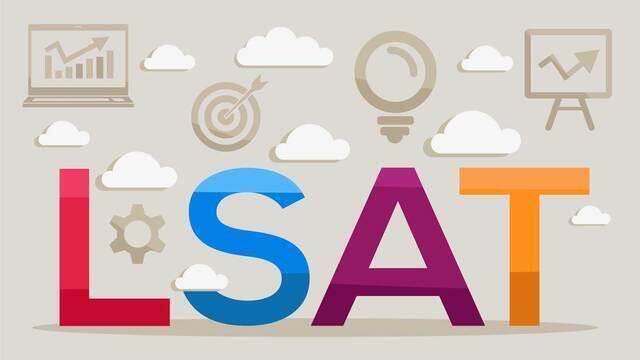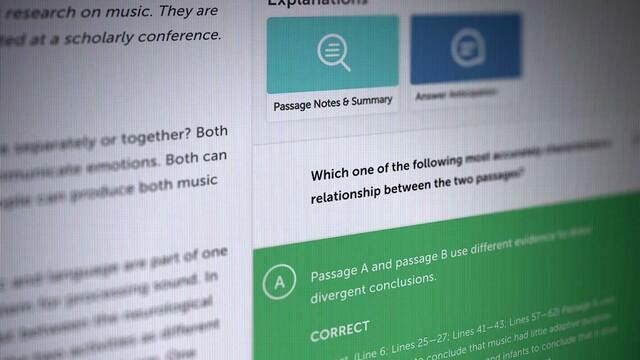We had so much fun at our recent “Correcting Bad Advice You’ve Gotten About the LSAT” webinar that we decided to spin that concept into a series of blog posts. This series will address all-too-common pieces of misleading, misguided, or just plain wrong LSAT advice.
To be clear, we don’t think anyone is deliberately offering bad advice. The LSAT is hard and complicated, and any LSAT advice requires some nuance and qualification. When LSAT advice spreads from person to person, the ensuing game of telephone tends to erode that nuance. Person A offers nuanced and good advice to Person B. Person B repeats that advice to Person C, but accidentally smooths over some nuance. Person C repeats Person B’s advice to Person D, but accidentally removes any remaining nuance. And now, Person D is the recipient of bad advice.
And once bad advice circulates in the LSAT space, it tends to ossify. Advice that lacks qualification and nuance is simpler and easier to remember and repeat to others. So, it takes hold.
Consider this series a corrective. In each post, we’ll address a common piece of bad advice we’ve seen drifting through the LSAT community. We’ll describe why this advice is misleading or unhelpful. Of course, we’ll offer better advice. And to keep this advice from easily slipping back into unnuanced bad advice, we’ll offer this better advice as simply and straightforwardly as we can.
Bad Advice #1: On the LSAT, you cannot rely on outside or background information
You can see how advice like this might catch on, no? It’s intuitively appealing. It’s extremely simple. It makes you feel like you don’t have to learn anything to do well on the LSAT.
As a result, this is incredibly popular advice advanced by many of the most prominent LSAT curricula. It’s easy to find LSAT students and even instructors who accept it as dogma.
It also has a kernel of truth — for some parts of the LSAT. Some LSAT questions prohibit us from using outside facts to justify the correct answer. These questions appear on both the Logical Reasoning and Reading Comp sections. Most curricula refer to these as “Must Be True” questions.
True to their name, Must Be True questions require us to look for the answer choice that must be true, according to the passage. We can prove that the correct answer is true using only the facts in the passage. Even if you know an answer choice is technically true in the real world, you shouldn’t select it if the passage doesn't suggest that it’s true. So, for Must Be True questions, it’s somewhat accurate to say we can’t rely on outside facts to justify the correct. (Still, that’s a bit reductive. Hence the “somewhat” qualifier.)
But Must Be True questions account for about 30% of all Logical Reasoning and Reading Comp questions. A substantial percentage of the exam, to be sure. But it’s not the entire exam. LSAT instructors and curricula took this advice — which applies to about 30% of these two sections — and, perhaps inadvertently, applied it to 100% of the LSAT. This version of the advice is simple and easy to remember. Unsurprisingly, we encounter far too many test-takers who assume this advice is axiomatic.
But the advice to refrain from using outside or background information, when applied to 100% of the LSAT, is just plain wrong. There’s no way around it.
How do we know? Well, look at the instructions to the Logical Reasoning section, for one. Those instructions say, “When answering the questions, you should not make assumptions that are by commonsense standards implausible, superfluous, or incompatible with the passage.”
Where might these “commonsense standards” come from? Well, where would common sense come from other than from our experiences? Our experiences in the real world. These instructions tell us to use some of our knowledge and experiences on the exam! The instructions definitely don’t tell us that all outside information is bad. The instructions just say that we shouldn’t rely on information that is almost certainly not true in the real world (“implausible”), not needed to answer the question (“superfluous”), or a direct contradiction of what appears in the passage (“incompatible with the passage”).
Plus, isn’t the notion that you don’t need “outside or background information” a little ridiculous if we interrogate it even a little bit? You need to know how to read the English language to do well on the LSAT. Reading the English language requires knowledge of the English alphabet. Surely that is outside information.
Plus, it’s easy to find questions that require you to use background information. A question about highway speed limits might require you to know that people drive automobiles on these highways and might occasionally get into accidents that harm drivers and automobiles. A question about primates might require you to understand that these primates sometimes exhibit human-like behavior, like acts of deception. These facts are probably so deeply ingrained in your brain that it doesn’t feel like you’re making any assumptions. But you’re relying on “outside or background information” all the same.
But enough harping on this bad advice*. Let’s discuss better advice.
Better Advice #1: Stick to the facts on Must Be True questions
This advice retains the intuitive clarity of the bad-advice version of this idea while including some nuance. This better-advice version specifies that this advice applies to Must Be True questions, so it doesn’t mislead by overgeneralizing. Plus, it provides positive rather than negative instruction. It gives direction on how to justify the correct answer, not a blanket prohibition that, at best, tells you how to avoid the wrong ones.
Keep this advice in mind as you practice Must Be True questions in Logical Reasoning and Reading Comprehension. When proving that an answer choice is correct on such a question, make sure you’re only using the facts provided in the passage. You can connect multiple facts to justify an answer choice if necessary. And it’s OK to use your common sense when making these connections. Did the passage tell us that an art teacher presented two paintings to two classes but told her first class that Painting A was the prestigious one while telling her second class that Painting B was the prestigious one? And did everyone in the first class say they prefer Painting A, while everyone in the second class said they preferred Painting B? If we connect those two facts, common sense would dictate that the art instructors statements might have influenced the classes’ responses.
Remember to stick to the facts on Must Be True questions, and you’ll be amply rewarded for your efforts. And if someone asks you for advice about what helped you answer Must Be True questions, try to offer the better version of this advice as simply and straightforwardly as you can. Let’s be the folks that stop the spread of bad advice that only makes the LSAT more challenging.
— — — — —
*OK, maybe a little more harping on this bad advice. We want to address a Corollary of Bad Advice #1 that we find even more pernicious: “Don’t pick answer choices that are ‘outside the scope’ of the passage.”
You’ll often find LSAT instructors or curricula that tell you not to pick any answer that is “outside the scope” of the passage. By this, they mean to avoid any answer choice that brings up facts, conditions, or ideas not explicitly mentioned in the passage. This one sticks in our craw even more than the “don’t rely on outside or background information.” It’s getting at the same idea (and is misleading for the same reason), but gussies this advice up with the phrase “outside the scope.”
That phrasing sounds smart and sophisticated — it’s the Tuxedo-Winnie-the-Pooh meme version of the “don’t rely on outside or background information” advice. It sounds vaguely scientific, like it’s related to research or something. Never mind that no one uses “outside the scope” in everyday conversation, so most LSAT learners won’t know what it actually means.
We find this version of the bad advice even more troubling because it does a better job making instructors look smart than helping their students. Call us crazy, but we think good advice should take complex ideas and make them easier to understand. “Outside the scope” does the precise opposite. It takes a relatively straightforward idea like “stick to the facts on Must Be True questions” and makes it more complicated with the arcane phrase “outside the scope.”
Moreover, many questions require you to go “outside the scope” of the passage to, for instance, find an answer choice that strengthens or weakens an argument or resolves a paradox. We think the phrase “outside the scope” should go inside the garbage bin.









